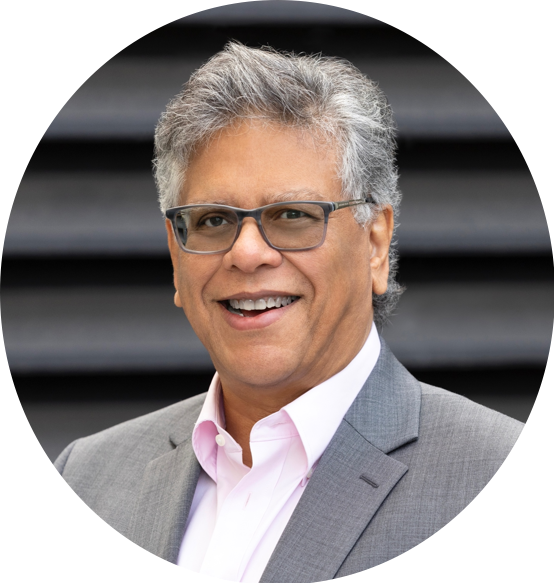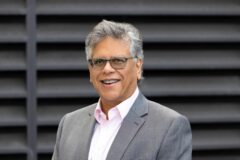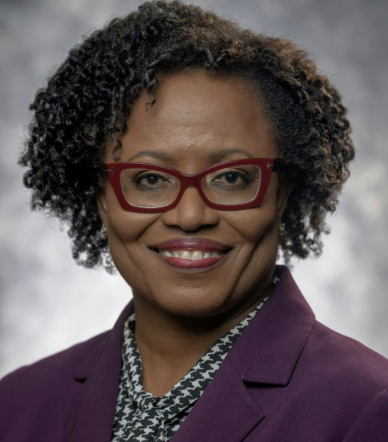 FROM THE PRESIDENT AND CEO
FROM THE PRESIDENT AND CEO
OCTOBER 2022
The energy and excitement of speakers and participants who attended AFN’s in-person conference last month was powerful as we engaged with each other on an array of provocative ideas as a different focus for consideration at this time. Thank you to all of our members and the many new funders, the sponsors, speakers, and staff for your support in making the event possible and a success. Among many highlights, here are a few I believe will continue to resonate for AFN.
“Be more than grantmakers, be changemakers!”
Initially framed as an exhortation from an indigenous author, Chante Peta Wiyan, it became a theme for our plenary speakers and our discussions of AFN Realizing Economic Justice reflections and regional work asking each of us to focus on our responsibility and roles internally and externally to challenge the status quo of the racialized and discriminatory history and systems still operating to deny opportunity, security and economic justice.
“Not everything that is faced can be changed. But nothing can be changed until it is faced.” James Baldwin
Indeed, this 1987 observation by James Baldwin became a dominant framework for our discussions. Joanna Ramani reviewed our national history and the series of explicitly race privileging legislation and implementation when the advantage was for white Americans. These advantages redistributed land and wealth from people of color. The racially privileged under past laws thus gained land for ownership and government subsidies for home mortgages, business start-up or expansion, or retirement. Today, we won’t be repairing and leveling the playing field without considering race and adopting the reparative solutions that provide capital and systemic preferences for Black, Latinx, Asian, or Indigenous persons who have been systematically disadvantaged. That is part of facing where we are — examine root causes, systemic advantages and bias in policies and implementation. If we are not clear about race, we’ll always be vulnerable. Start with the desired outcome and come up with the policy and system changes needed was the challenge we were asked to consider
“Asset building is a human right.”
Darrick Hamilton also asked participants to reflect upon a novel, overarching framework for philanthropy that asset building is a human right. Referencing the United Nations Declaration of Human Rights provisions ranging from the “right to life, liberty and security of person” (Article 3) to the right to “realization… of the economic, social and cultural rights indispensable for dignity and the free development of his personality” (Article 22) and to the “right to a standard of living adequate for the health and well-being of himself and of his family, including food, clothing, housing and medical care and necessary social services, and … to security” (Article 25), we were all tasked to consider how to reinvent systems to afford and achieve those rights with equity focused economic innovation to release capital to entrepreneurs of color, provide debt free post-secondary education, implement needed tools like Baby Bonds, and advance meaningful racial economic justice interventions and policy changes.
“Reparations only work if the capital transferred is significant enough to foster justice.”
Several speakers were clear – we need reparations. The Pigford settlement for the black farmers overtly discriminated against by the Federal government in our lifetimes eventually provided cash damages but the amounts may well be insufficient to have provided reparations that cured the damages and leveled the playing field. Tom Shapiro presented how local advocates and Brandeis in partnership with funding in part from AFN members will be documenting and analyzing the adequacy of the income to help build assets to inform future efforts.
“Income and assets are connected priorities; don’t silo them.”
We were discussing the need to both understand and undo occupational segregation because racial and gender segregation perpetuate inequality — we need to change the outcome that people of color and women are overwhelmingly in bad jobs, however essential —and to think about how workforce system investment sustains, or reforms racialized occupational segregation.
What can you, your institution, grantees, and peers do to Realize Economic Justice?
As we previewed our Realizing Economic Reflections and discussed the value and effectiveness of our regional chapters, the emphasis was on the journey – we are learning and unlearning. Reflection on what is being said and what is not said is a constant exercise to understand the change that is needed. Implementation keys require us to reimagine risk and redefine risk tolerance. Asset building will require philanthropy to be patient but focused, values based, movement building, and relentless on the long-term outcomes. We will need to be clear on why – the goals, the strategies, the tactics and the desired outcomes. Narrative change to advance those outcomes will be necessary. In the end, as Chante Peta Wiyan reminded us there is value in remembering there is no newness without ending; achieving things of value seldom are safe.
Your will is your power. Use your power. Join AFN if you have yet to do so. Share your journey and progress.


